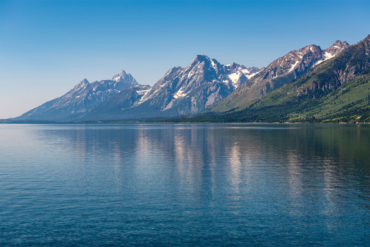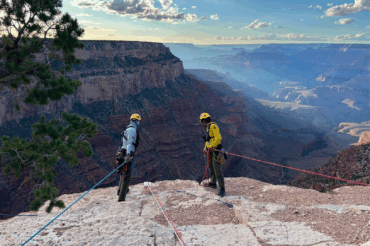H.R. 2936 would remove federal protections from public lands, potentially clearing the way for logging interests, and rescind national monument designation from Oregon and California’s Cascade-Siskiyou forests.

The House Natural Resource Committee passed the Resilient Federal Forests Act of 2017 today, mostly along party lines. The bill’s supporters claim it will help mitigate or prevent the spread of wildfire-prone areas by easing restrictions on forest-thinning.
Environmentalists, however, note the bill goes too far. They claim it opens the door for the timber industry to move into protected wildlands. They also point to the bill’s delisting of the Cascade-Siskiyou forests as a national monument, potentially marking the first monument rescinded per Trump’s executive order.
The bill will go before the full House for a vote, expected by August 20th.
Resilient Federal Forests Act Of 2017
H.R. 2936 is complicated legislation. But watchdogs worry primarily about two provisions.
First, under Title I, Subtitle B, the bill would “categorically exclude” certain activities from any environmental assessment or an environmental impact statement. The bill notes “timber production” as excluded from impact assessment.
This, in addition to easing restrictions on forest-clearing for the purpose of protecting municipal water, preventing the spread of insect and disease infestation, and reducing hazardous fuel load (against wildfires).
But environmentalists worry the bill opens protected lands to unfettered lumber production.
Ostensibly, this is for the purpose of protecting money allocated for other environmental protections from being used to thin forests in wildfire mitigation.
In an interview with Environment and Energy News, the bill’s sponsor, Rep. Bruce Westerman, R-Ark., said his primary concern was preventing the Forest Service from taking funds out of non-fire-related accounts to thin forests.
“If you just do the fire fix, it’s not really a fix, it’s a Band-Aid,” Westerman said.
But as Paul Spitler, director of wilderness policy for The Wilderness Society, told us: “Under this bill, the forest service could do a logging project on national forest lands, up to 30,000 acres — that’s almost 50 sq. miles — with no environmental review and very little public involvement. That is deeply concerning.”
Cascade–Siskiyou National Monument
Also at issue is Title IX, under which the management of public lands — and the revenue it generates — would revert back to the states’ hands where applicable.
Specifically, H.R. 2936 rolls back the management of federally protected lands in northern California and western Oregon, including the Cascade–Siskiyou National Monument.
Under the bill, officials would manage the lands pursuant to the Oregon and California Lands Act of 1937. Should that happen, the nearly 87,000 acres of Cascade–Siskiyou forest would lose all protections imparted by President Clinton’s national monument designation in 2000, and President Obama’s subsequent expansion in 2017.
If passed, Cascade–Siskiyou National Monument would be the first monument ever delisted following an executive order.







